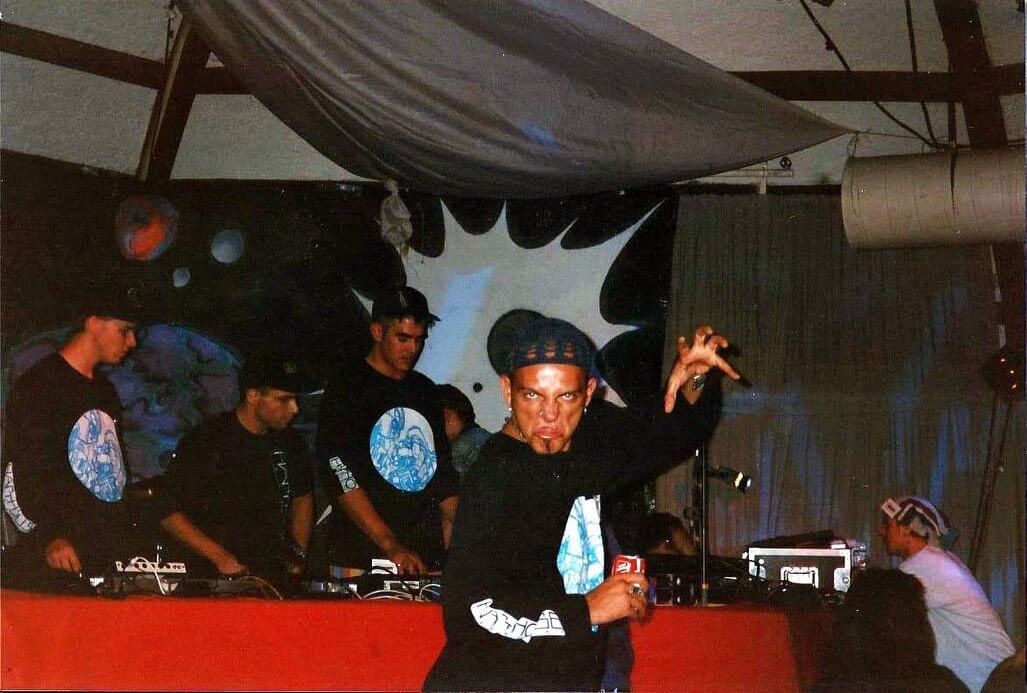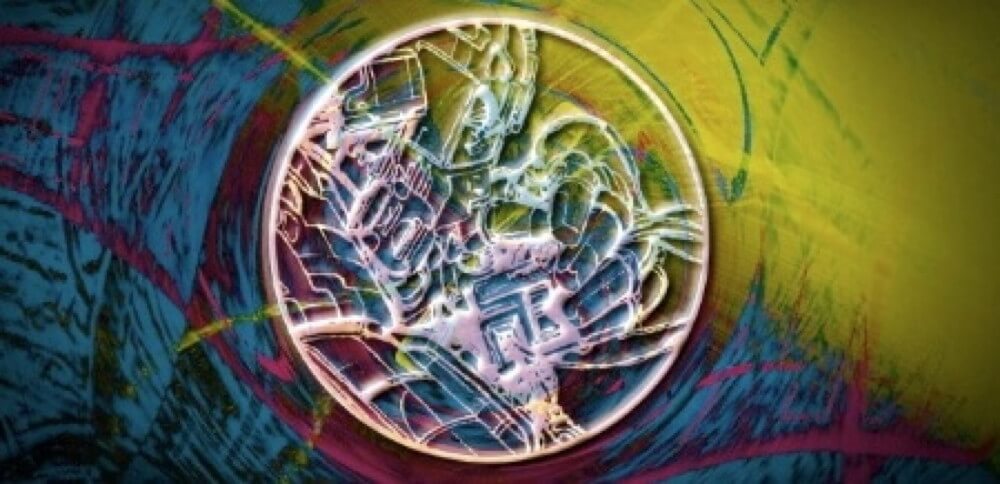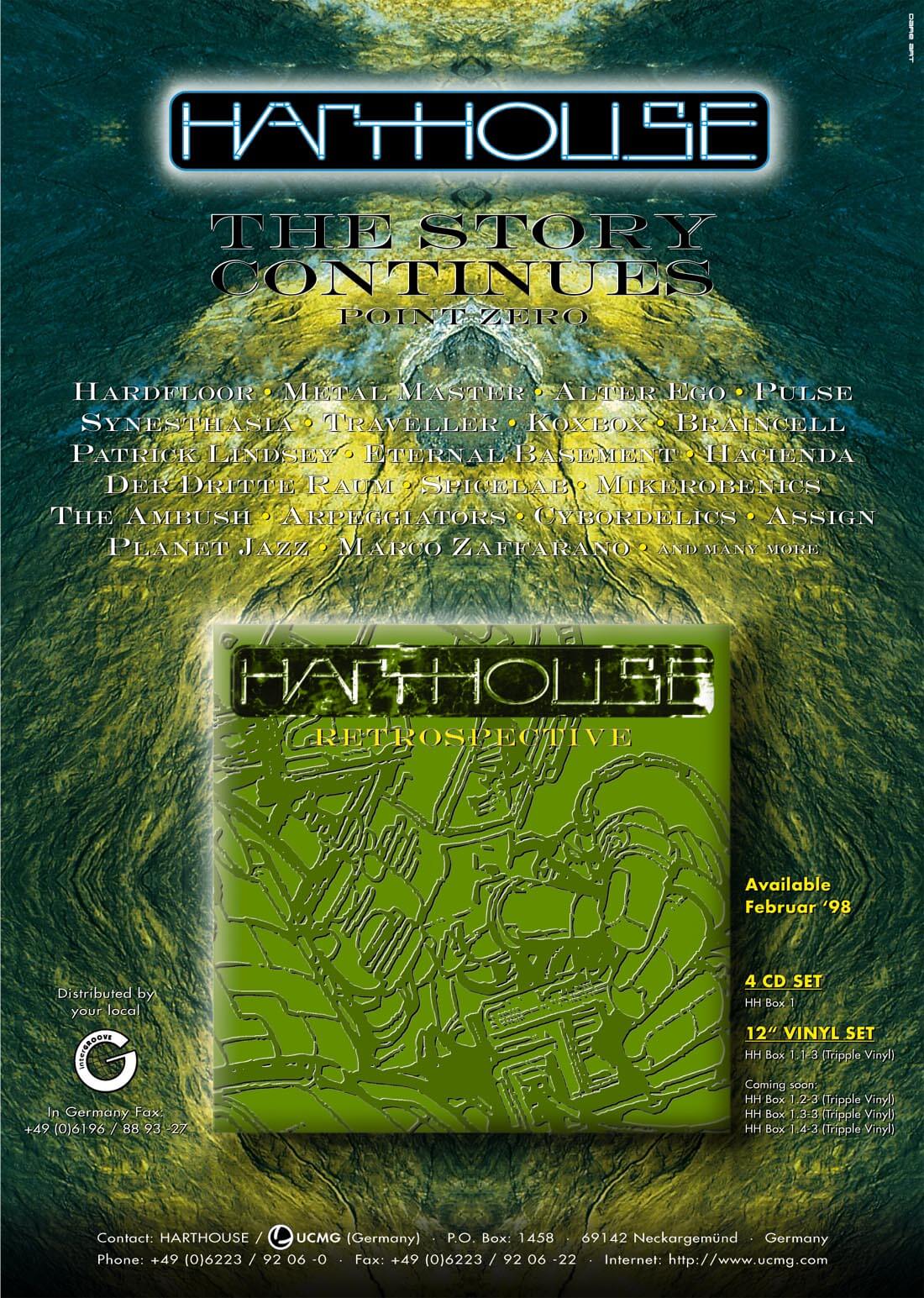The label Harthouse was founded in 1992 in Frankfurt / Offenbach by Matthias Hoffmann, Heinz Roth and the well-known Frankfurt DJ Sven Väth. Harthouse, a sublabel of Eye Q Records in the early years from 1992 to 1997, was launched as a platform for newcomer artists. It stood for a harder, more minimalist sound that did not fit into Eye Q Records‘ commercial lineage. Sven Väth commented, “We wanted to create a stage, a playground – even an experimental one – and I think we succeeded.”
His co-producer until 2000 was Ralf Hildenbeutel, who still runs the production company “Schallbau” today. Sven Väth, together with the other “Schallbau” members Steffen Britzke (aka B-Zet) and Matthias Hoffmann (aka AC Boutsen), also released various projects themselves on Harthouse. The decision on what was released on Harthouse and what was not was up to Sven Väth from the beginning. In the early years, Harthouse releases were heavily limited, to about 2000 copies per release. The white sample promo list was also kept small. In a very short time, Harthouse became the flagship of the German techno scene. The label became known worldwide, its artists became stars of the international scene with high placements in the charts.
But soon after, in 1994, the deal with “Rising High” was cancelled and Harthouse opened its own distribution department in the UK. The cooperation with “Moonshine Records” in the USA also proved not to be as successful as hoped.
It was clear to everyone involved that this could not work. The limitation of the editions was still stopped quickly enough, but the move to a smaller office came too late.
Pascal FEOS (Resistance D) said at the time, “I’d like to know more myself. Of course, we didn’t get any more royalty statements.” Ramon Zenker (Hardfloor) followed with the comment, “In the end, new people always answered the phone when I called Harthouse. I never got any money, though. Fortunately, we had a clause in our contract that entitled us to collect the money if payment was late. So we were some of the last people to get any money at all. “
When Sven Väth was asked about his exit from the company, he mentioned conflicts of interest between his partners and himself, as well as serious doubts about the discrepancy between his initial dreams, which had given him strength, and the sad reality of the whole enterprise.
At that time, artists such as Zoo Brazil, Gui Boratto, Hardfloor, Der Dritte Raum, Boris Brejcha, Joey Beltram, Joel Mull, Jesper Dahlbäck, Alexi Delano, among others, released on the Harthouse label, creating with their releases an appropriate successor to the “old Harthouse sound” and myth.
At the end of 2017 came the next big change. The company UCM.ONE from Berlin took over the label Harthouse and all rights from daredo media. The first release was the album “Der Dritte Raum – D3R-25” with new remixes of well-known tracks, followed by a new album, which was released in autumn 2018.
In the label’s newest era, Harthouse has not only arrived in the capital city of Berlin itself, but is also releasing Der Dritte Raum, an act that is also now based in Berlin and was already one of the best-known and most successful artists on the label during its Frankfurt days.
In addition to new releases and re-releases by established Harthouse artists and bands such as Eternal Basement, Der Dritte Raum, Boris Brejcha and Resistance D, the “Berlin time” also featured new titles by well-known artists such as Frank De Wulf, CJ Bolland, Tom Wax and Ken Ishii. At the same time, new artists such as Smilla, sikØra, DJ Lion or Betatec continue to join the ranks and release on Harthouse.














